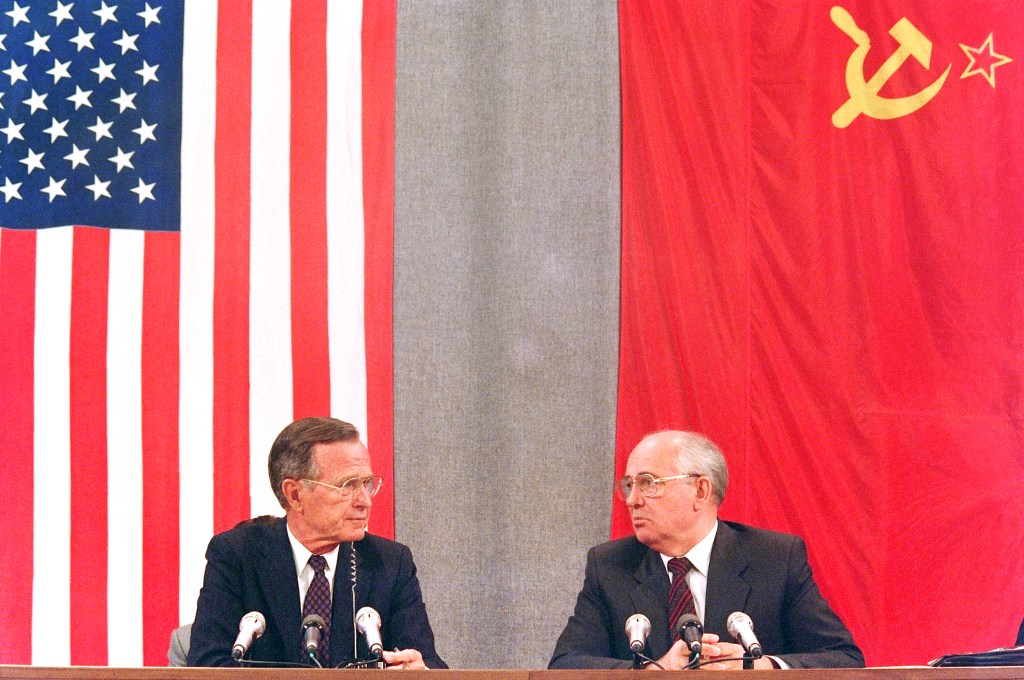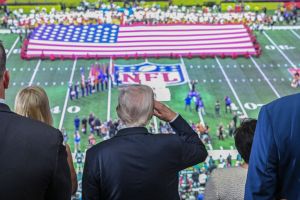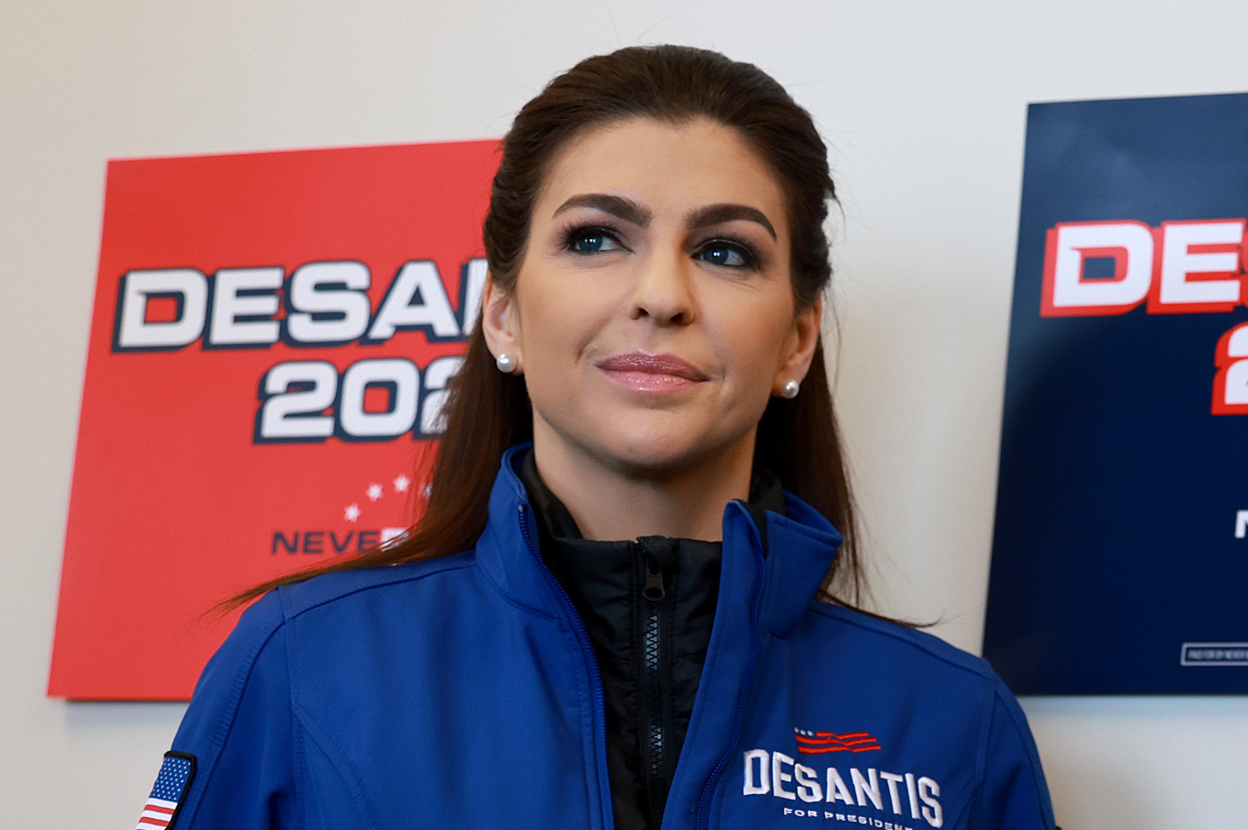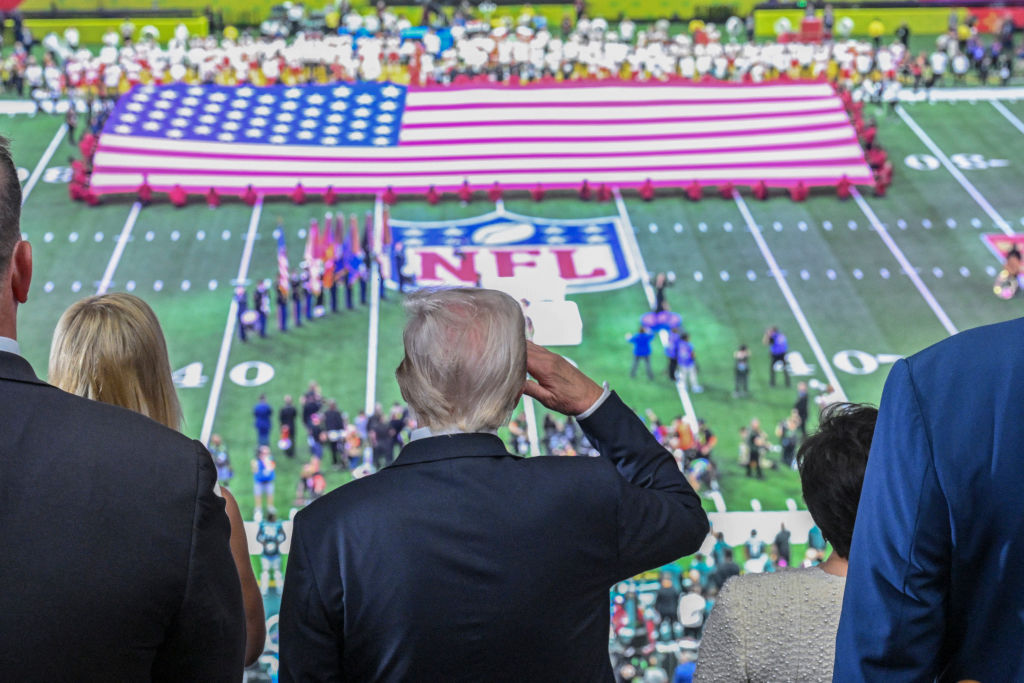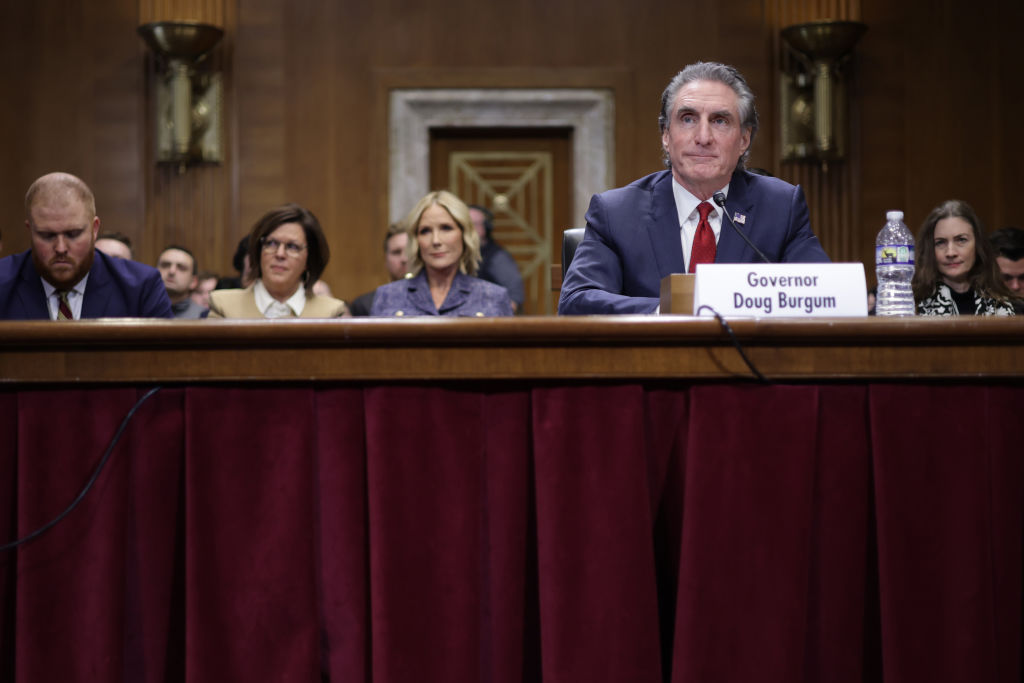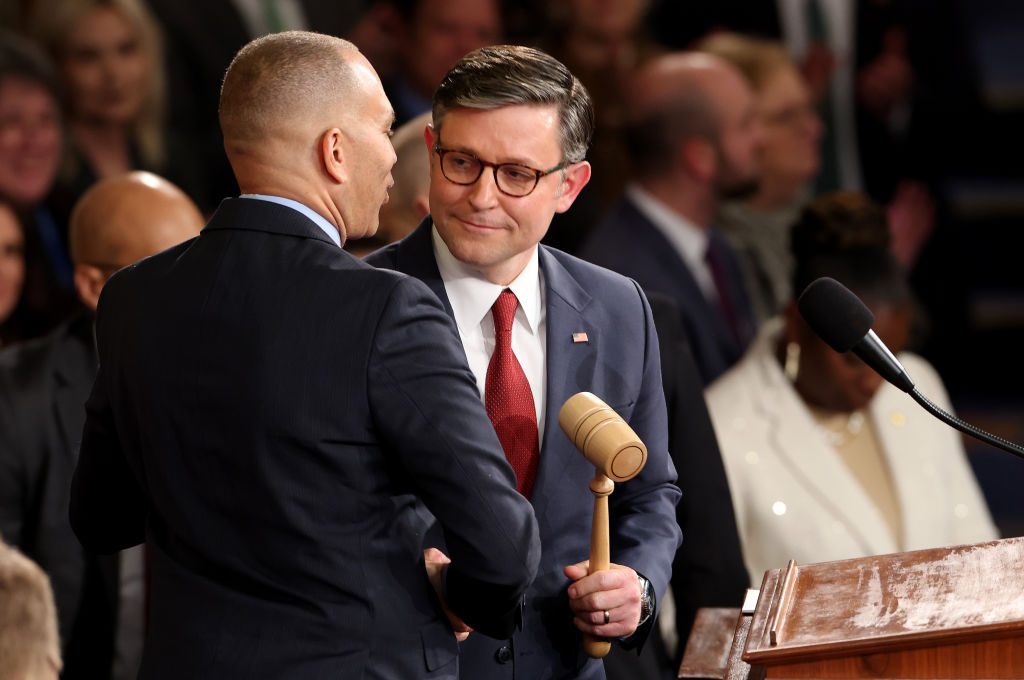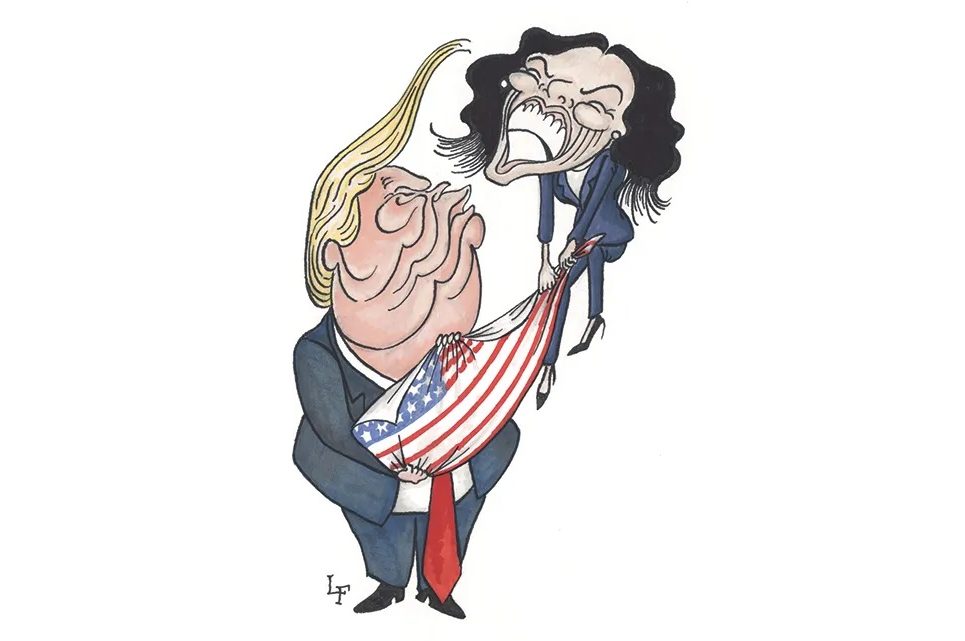The chapters of the life of President George H.W. Bush, who died on Friday night aged 94, are the history of an era. If he was not one of Emerson’s ‘representative men’, it was to the good. The ‘representative man’ of Emerson’s imagination was Carlyle’s ‘great man’, a conqueror who stamped his mark on his age by forcing his environment to reflect his inborn character. G.H.W. Bush’s character reflected its environment, and represented the virtues of a vanishing class and suddenly distant age.
Born in 1924 a senator’s son, Bush was educated at Phillips Academy and Yale, decades before the acronym WASP was coined. In 1942, he enlisted in the US Navy on his 18th birthday. As a naval aviator, he returned to duty after being shot down and rescued from the Pacific. After the War, and already married to Barbara Pierce, he did his duty in the family business, moving around Texas with a growing family as he made money in oil.
A patrician is supposed to be a responsible manager. Bush’s early political career is a case study in the middling virtues. In 1966, he won the Congressional race in Texas’s 7th District. He favored the absorption of the Birchers into the Republican party, but also voted for the 1968 Civil Rights Act in the face of many of his electors. He supported Nixon on Vietnam, but supported birth control in the face of many of his Republican colleagues.
Following a failed Senate run in 1970, he became Nixon’s ambassador to the UN (1971-73), before accepting the chairmanship of the RNC in the middle of the Watergate scandal. It fell to Bush to formally tell Nixon that he must resign for the good of the party. Gerald Ford passed him over for the vice-presidency, and appointed him as envoy to China and then head of the CIA (1976-77).
After a decade in public life, Bush had accumulated an impressive record, and even been crucial to the Republicans’ negotiation of perhaps the most turbulent peacetime decade in American history. But a person of his character and political principles was increasingly out of step with the relaxed and egalitarian mood of the times, and the perhaps related intensification of political ideology. His public career might have ended when he lost the 1980 Republican nomination to the crowd-pleasing Ronald Reagan, had not Reagan picked him as vice-president.
Typically, when Reagan was shot by John Hinckley Jr., Bush overruled advice that he should demonstrate that the government was still functioning by being seen to land in a helicopter on the South Lawn of the White House. Typically, when the Iran-Contra scandal broke in 1986, Bush denied all knowledge. Today’s media are are not as generous as the media were in the 1980s. Bush’s measured response to the optics of Reagan’s shooting would now be construed as weakness. Even at the time, his denial of knowledge about Iran-Contra was hard to believe.
Bush was supposed to lack the ‘vision thing’, but what had really happened was that Americans’ vision of what a president should look and sound like had changed. Bush won the presidency in 1988 as what used to be called a ‘compassionate conservative’. The campaign is remembered more for a race-baiting ad about Willie Horton, a black rapist who had committed rape, assault, and robbery after being furloughed for the weekend, than for Bush’s rhetoric.
It fell to Bush to manage the most important foreign policy transition since 1945, the collapse of the Soviet Union and the end of the Cold War. Bush’s rhetoric of freedom was the product of his early environments — World War Two and the anti-communist Fifties — but his support for a reunified Germany and the newly liberated nations of Eastern Europe helped to create the environment of the Nineties, which saw a sudden expansion of liberal and democratic principles. It was still possible then for an American president to talk of advancing freedom as a national interest, without being derided as a ‘globalist’ or a dreamer.
Bush took the via media, the middle path, through the Middle East. In 1990, the American-led coalition expelled Saddam Hussein’s forces from Kuwait, but stopped short of overthrowing Saddam. As Kissinger had exploited the Yom Kippur War to create the terms of Israeli-Egyptian rapprochement, so Bush’s administration exploited the Iraq War and its aftermath to push for Israeli-Palestinian negotiations; in 1991, the threat of withholding loan guarantees to Israel forced the recalcitrant Shamir government into the Madrid conference. This was classic realpolitik. The Kurds paid the price, and the PLO reaped the benefits, but the region, and American interests within it, remained stable.
Bush was stronger on foreign policy, where brains and behind-the-scenes maneuvers were still valued, than on domestic policy, where debate was developing into a form of reality television. He became perhaps the most successful one-term president of the 20th century by losing the 1992 election to Bill Clinton. The economy had weakened, unemployment was rising, and Bush had reneged on his ‘Read my lips: No new taxes’ promise.
Inevitably polite in defeat, Bush became a post-presidential consensus figure. Some of this derived from the civility of his once-mocked manner. But some of it derived from the contrast between Bush’s character and the characters of the presidents who followed him.
Unlike Clinton, Bush was not a draft-dodger who exploited his office for sex. Unlike George W. Bush, he was not reckless with American power. Unlike Barack Obama, he was not an adman’s idea of a president. He was so unlike Donald Trump that he could not bring himself to endorse Trump’s candidacy. By then, he was also unlike his own party.
That was the paradox of George H.W. Bush, a paradox made explicit in the disastrous presidency of his son. He was a patrician who, by succeeding in the duty of office, abetted the populist decline of the Republican party, and of American politics in general. He was a representative man, and the best of what he represented now seems almost absurdly distant from current American politics.
Bush had a clear vision of the responsibilities and limits of government, and of the obligations and complexities of public service. He was measured in speech and judgement, and had made enough of his own money not to embarrass the presidency and the people by creating a pay-to-play ‘foundation’, or pitching for hotel deals in Moscow.
The death of the last president to have served in World War Two represents the passing of an age. That age happened to be the age in which America rose to global supremacy and defended liberal democracy and a stable global system. A quaint idea to ponder as you ask for another splash of coffee.
Dominic Green is Life & Arts Editor of Spectator USA.



